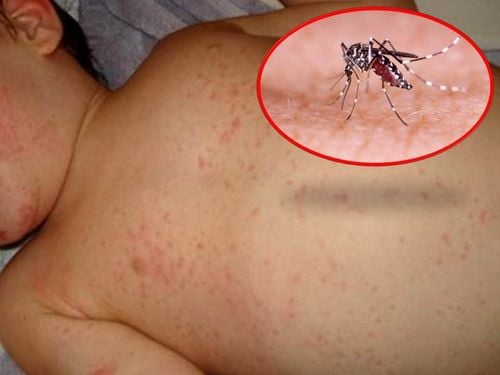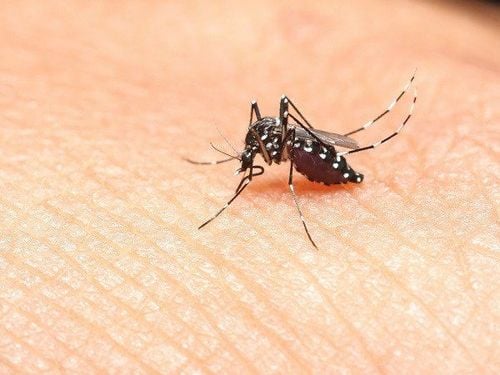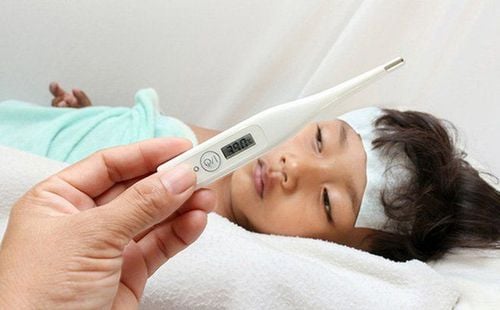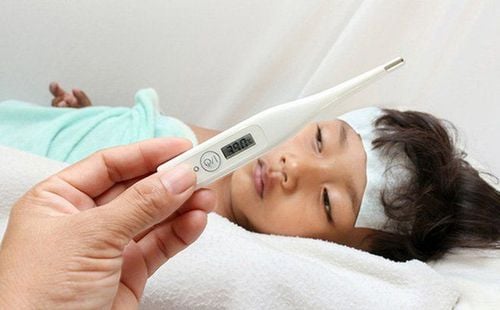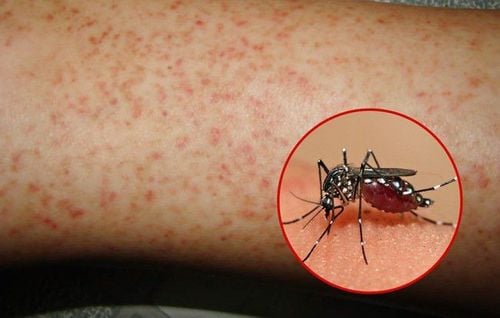This is an automatically translated article.
The article was professionally consulted by Pharmacist Ngo Thi Thu Thuy and pharmacist Nguyen Hoang Phuong Khanh - Faculty of Pharmacy - Vinmec Central Park International General Hospital.What medicine do you take for dengue fever? When fever is needed in dengue fever, most patients are treated at home with common antipyretics, without a doctor's prescription. However, to ensure safety, the use of antipyretic drugs in dengue fever requires some precautions and should follow the instructions or indications of a doctor to avoid adverse situations during treatment.
1. What is Dengue?
Dengue fever is a disease characterized by fever caused by infection with Dengue virus transmitted by mosquitoes. Symptoms of the disease usually appear 4-7 days after being bitten by an infected mosquito and last 5-7 days.
Dengue fever symptoms are different from person to person; Some people have only mild cases, while others have serious illnesses. The most common symptoms include fever, headache, pain behind the eye sockets, muscle and joint pain, red rash... More serious illness can cause the patient to have severe abdominal pain, vomiting blood, nosebleeds or vomiting. convulsion ... life-threatening.
Therefore, when experiencing the above symptoms, patients need to go to medical facilities for timely examination and treatment.
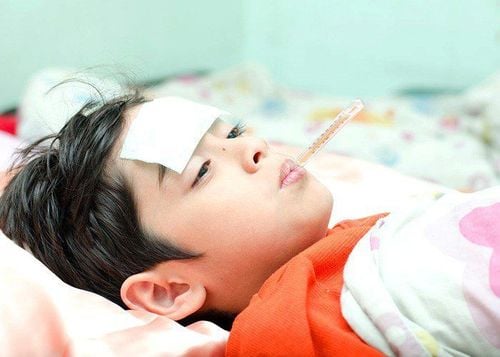
Dịch sốt xuất huyết đang diễn biến phức tạp tại nhiều tỉnh thành trên cả nước
2. How to treat dengue fever?
There is no single drug or treatment specific to dengue; Doctors will help treat the symptoms of the disease (fever, headache, muscle and joint pain ...) and support the patient's condition until recovery. Only severely ill people need to be treated in hospital, while the majority of milder, healthier people can be rested and treated at home. However, the patient should not be subjective and must visit or re-examine with the doctor as required to prevent serious complications of the disease, if any.3. What antipyretic drugs can be used in dengue fever?
To reduce fever and headaches, people can use common pain relievers and fever reducers such as Paracetamol (Acetaminophen). This is a drug that can be sold without a doctor's prescription, can be used for all ages (when there are no contraindications) but it is necessary to ensure that it is sufficient and in the correct dose according to the instructions for use of each drug or as directed by the physician. doctor.Overdose drugs can cause poisoning, acute liver necrosis and other dangerous complications, so if the patient does not have a fever or continues to have a fever after taking the maximum allowable dose, it is necessary to go to the doctor. at medical facilities for appropriate treatment.
For children, parents also need to pay attention to different dosage forms of Paracetamol such as pills, syrup, oral powder and suppositories.... When necessary, it is necessary to combine many forms. different drugs (such as powder or syrup taken when the child is awake with anal tablet when the child sleeps...), parents must pay attention to the total dose of medicine during the day not to exceed the maximum allowable dose in order to avoid poisoning toxicity due to overdose. Therefore, to be safe, young children or high fevers are difficult to lower, so they need to be examined by a doctor for instructions on appropriate medication.
>> Read more: Types of paracetamol content, dosage and users - The article was professionally consulted by Pharmacist, Dr. Phan Quynh Lan - Director of Pharmacy Department of Vinmec Health System - Head of Pharmacy Department , Vinmec Times City International General Hospital.
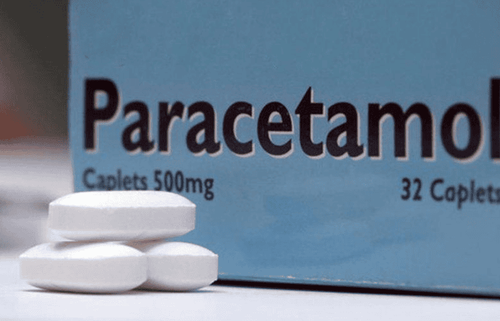
Paracetamol là thuốc được sử dụng để giảm đau và hạ sốt
4. What fever reducer should not be used when having dengue fever?
Do not use other antipyretic drugs such as Aspirin or Ibuprofen (or other anti-inflammatory drugs of the same class) to reduce fever and pain caused by dengue fever.
Aspirin Aspirin is an antipyretic, moderate to mild pain reliever, but is not used in dengue fever. Aspirin is also an antiplatelet drug, prevents the formation of blood clots and is used in the prevention and treatment of some cardiovascular diseases. The use of drugs increases the risk of bleeding and can lead to other dangerous complications in dengue fever such as gastrointestinal bleeding, vomiting blood, bleeding under the skin ...).
Aspirin should also not be used to reduce fever and pain for children under 18 years old, especially children who have or are recovering from viral diseases such as chickenpox, seasonal flu ... These diseases also have other symptoms. Symptoms are similar to dengue fever (high fever, fatigue, body aches ...) and can be confusing. Using aspirin for improper purposes can cause children to have Reye's syndrome, a hepatic encephalopathy, causing brain edema and liver failure that can lead to death and leave irreversible brain damage sequelae.
Ibuprofen and Other Non-Steroidal Anti-Inflammatory Analgesics Similar to Aspirin, Ibuprofen is also a drug that should not be used in dengue because of the increased risk of bleeding and other complications of dengue. Other drugs in the same class as ibuprofen (non-steroidal anti-inflammatory and pain relievers - NSAIDs) such as diclofenac, meloxicam ... are also not used because the drugs in this group have the effect of inhibiting platelet aggregation, causing platelet aggregation. Risk of bleeding, complications in varying degrees in dengue.
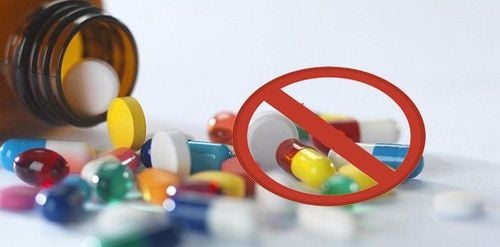
Không được dùng aspirin cho cả người lớn và trẻ em bị sốt xuất huyết




